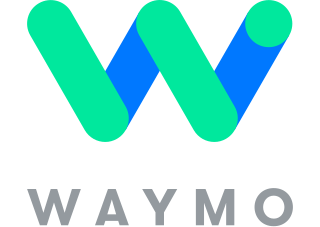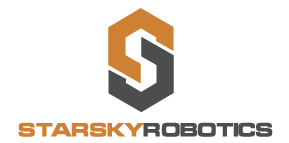
A self-driving car, also known as an autonomous vehicle, driverless car, or robo-car is a vehicle that is capable of sensing its environment and moving safely with little or no human input.

Vehicular automation involves the use of mechatronics, artificial intelligence, and multi-agent system to assist a vehicle's operator. These features and the vehicles employing them may be labeled as intelligent or smart. A vehicle using automation for difficult tasks, especially navigation, may be referred to as semi-autonomous. A vehicle relying solely on automation is consequently referred to as robotic or autonomous. After the invention of the integrated circuit, the sophistication of automation technology increased. Manufacturers and researchers subsequently added a variety of automated functions to automobiles and other vehicles. The technology involved in implementing autonomous vehicles is very expansive, ranging from technological improvements on the vehicle itself to the environment and objects around the vehicle. As the use of automated vehicles increases, they are becoming more influential in human lives. Although automated vehicles bring various benefits, it also comes with various concerns. Also, there are still technology challenges that autonomous vehicles seek to make a breakthrough in order to make it robust and scalable.
Velodyne Lidar is a Silicon Valley-based lidar technology company spun off from Velodyne Acoustics. As of July 2020, the company has worked with more than 300 customers. Velodyne Lidar ships sensors to mobility industry customers for testing and commercial use in autonomous vehicles, advanced driver assistance systems, mapping, robotics, infrastructure and smart city applications.

Waymo LLC is an American autonomous driving technology development company. It is a subsidiary of Alphabet Inc, the parent company of Google. Waymo operates a commercial self-driving taxi service that operates in the greater Phoenix, Arizona area called "Waymo One", with Chandler, Arizona fully mapped. In October 2020, the company expanded the service to the public, and it is the only self-driving commercial service that operates without safety backup drivers in the vehicle. Waymo also is developing its driving technology for use in other vehicles, including delivery vans and Class 8 tractor-trailers for delivery and logistics.

Experiments have been conducted on self-driving cars since at least the 1920s; promising trials took place in the 1950s and work has proceeded since then. The first self-sufficient and truly autonomous cars appeared in the 1980s, with Carnegie Mellon University's Navlab and ALV projects in 1984 and Mercedes-Benz and Bundeswehr University Munich's Eureka Prometheus Project in 1987. Since then, numerous major companies and research organizations have developed working autonomous vehicles including Mercedes-Benz, General Motors, Continental Automotive Systems, Autoliv Inc., Bosch, Nissan, Toyota, Audi, Volvo, Vislab from University of Parma, Oxford University and Google. In July 2013, Vislab demonstrated BRAiVE, a vehicle that moved autonomously on a mixed traffic route open to public traffic.
The Apple electric car project is an electric car project undergoing research and development by Apple Inc. Apple has yet to openly discuss any of its self-driving research, but around 5,000 employees were reported to be working on the project as of 2018. In May 2018, Apple reportedly partnered with Volkswagen to produce an autonomous employee shuttle van based on the T6 Transporter commercial vehicle platform. In August 2018, the BBC reported that Apple had 66 road-registered driverless cars, with 111 drivers registered to operate those cars. In 2020, it is believed that Apple is still working on self driving related hardware, software and service as a potential product, instead of actual apple-branded cars. In December 2020, Reuters reported that Apple was planning on a possible launch date of 2024, but analyst Ming-Chi Kuo claimed it would not be launched before 2025 and might not be launched until 2028 or later.
A robotaxi, also known as a self-driving taxi or a driverless taxi, is an autonomous car operated for a ridesharing company.

Anthony Levandowski is a French-American self-driving car engineer. He is known for advancing the field of autonomous vehicles and for pleading guilty to trade secret theft. In 2009, Levandowski co-founded Google's self-driving car program, now known as Waymo, and was a technical lead until 2016. In 2016, he co-founded and sold Otto, an autonomous trucking company, to Uber Technologies. In 2018, he co-founded the autonomous trucking company Pronto; the first self-driving technology company to complete a cross-country drive in an autonomous vehicle in October 2018. At the 2019 AV Summit hosted by The Information, Levandowski remarked that a fundamental breakthrough in artificial intelligence is needed to move autonomous vehicle technology forward.
Lior Ron is an Israeli-born businessman. He served in the Israel Defense Forces from 1997 to 2004, before attending Stanford to pursue a MBA. In 2016 he co-founded Otto, a self-driving truck company, with Anthony Levandowski, Claire Delaunay and Don Burnette. Prior to Otto he was the Product Lead for Google Maps and then the Product Lead for Motorola Mobility, which was acquired by Google in 2011.

Argo AI is an autonomous driving technology company headquartered in Pittsburgh, Pennsylvania. The company was co-founded in 2016 by Bryan Salesky and Peter Rander, veterans of the Google and Uber automated driving programs. Argo AI is an independent company that builds the software, hardware, maps, and cloud-support infrastructure to power self-driving vehicles. Argo has two major investors: Ford Motor Co. (2017) and the Volkswagen Group (2020). Argo’s Self Driving System (SDS) technology will be incorporated into vehicles manufactured by the auto-makers through these partnerships.

Kar-go, is an autonomous delivery vehicle, designed and built by British company, Academy of Robotics Ltd, a UK company registered in Wales. The vehicle uses self-drive / driverless car technology to drive itself to locations where it delivers packages autonomously.
Clearpath Robotics, Inc. was founded in 2009 by a group of four University of Waterloo graduates, and remains headquartered in Waterloo Region, Canada. The original goal of Clearpath was to streamline field robotics research for universities and private corporations, but the company has since expanded and is now also manufacturing and selling the OTTO line of self-driving vehicles for industrial environments.

Chris Urmson is a Canadian engineer, academic, and entrepreneur known for his work on self-driving car technology. He is the co-founder and CEO of Aurora, a company founded in 2017 to develop self-driving technology. Urmson has been instrumental in pioneering and advancing the development of self-driving vehicles since the early 2000s.

Starsky Robotics was an autonomous truck company founded in 2016. It developed trucks to drive without a person in the vehicle. The company started in 2015 and had raised $21.7 million by 2018. It failed to find further investors in November 2019, and shut down by March 2020.
AImotive is an autonomous vehicle technology company. The company aims works with automotive manufacturers and Tier1s to enable automated technologies. AImotive describes its approach as "vision-first", a system that primarily relies on cameras and artificial intelligence to detect its surroundings. The technology is designed to be implemented by automobile manufacturers to create autonomous vehicles, which can operate in all conditions and locations. In September 2017, PSA Group teamed up with AImotive.
A self-driving truck, also known as an autonomous truck, or robo-truck, requires no human driver, similar to self-driving cars. Several companies are said to be testing autonomous technology in semi trucks.

Nuro is an American robotics company based in Mountain View, California and founded by Jiajun Zhu and Dave Ferguson. Nuro develops autonomous delivery vehicles, and was the first company to receive an autonomous exemption from the National Highway Traffic Safety Administration since its vehicles are designed to carry goods instead of humans. The R2 model would be designed with no steering wheel, side view mirrors, or pedals.
Drive.ai, a subsidiary of Apple, is an American technology company headquartered in Mountain View, California that uses artificial intelligence to make self-driving systems for cars. It has demonstrated a vehicle driving autonomously with a safety driver only in the passenger seat. To date, the company has raised approximately $77 million in funding. Drive.ai's technology can be modified to turn a vehicle autonomous.

Yandex self-driving car is a Robo-Taxi project of the Russian-based internet corporation Yandex. The first driverless prototype launched in May 2017. As of 2018, functional service was launched in Russia with prototypes also being tested in Israel and the US.
DeepMap, is a Palo Alto, California-based software company that develops high definition (HD) maps for self-driving vehicles.













